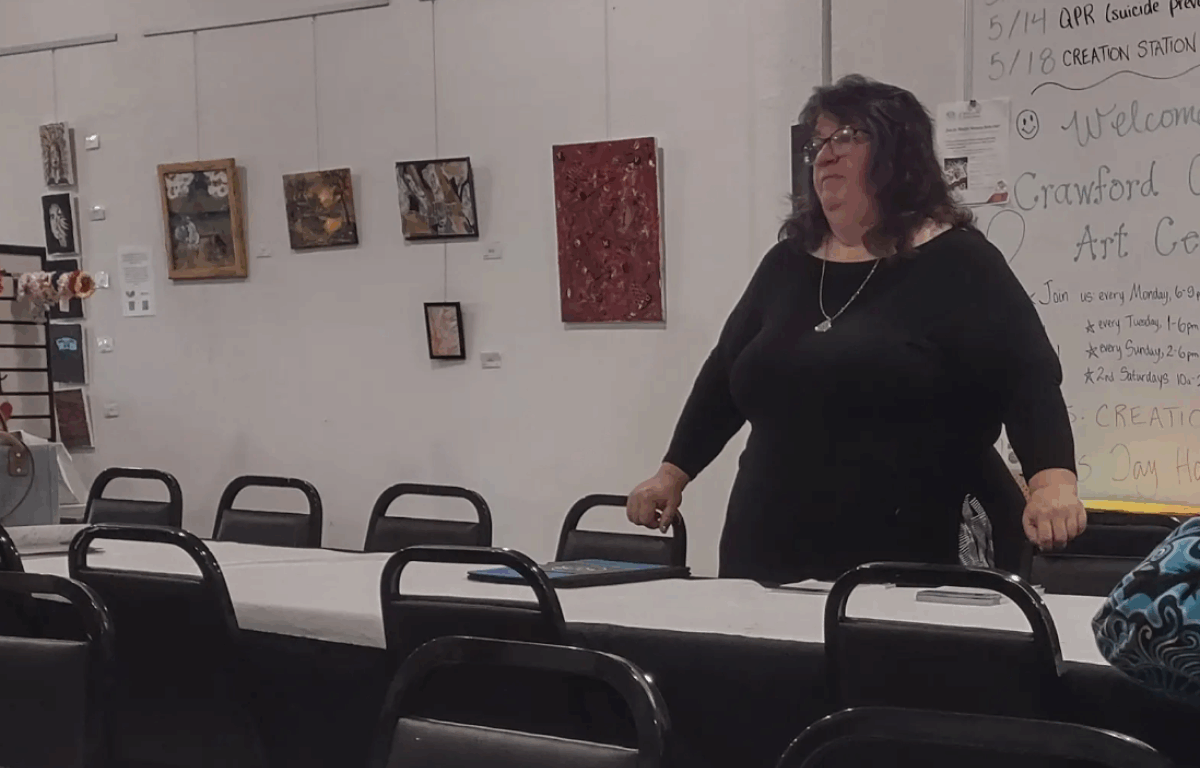BUCYRUS, OH (CRAWFORD COUNTY NOW)—In the cozy confines of the Crawford County Art Center in Bucyrus, Alena Fox, a 10-year veteran volunteer with the National Alliance on Mental Illness (NAMI), engaged a group of concerned citizens in Question, Persuade, Refer (QPR) training—a lifeline for those in mental health crises.
Alena Fox serves as a trainer for the QPR Institute, which stands alone and offers QPR Gatekeepers Training as a suicide prevention program. It is a partner in mental health advocacy along with groups like ADAMH, the Crawford County Suicide Prevention Coalition, 9-8-8, & NAMI. To learn more about QPR training, visit QPR Institute Practical and Proven Suicide Prevention Training QPR Institute (en-US).
“It all starts with asking the question,” Fox said, “If you think someone’s struggling, ask directly: ‘Are you thinking about suicide?’ It’s not easy, but it can save a life.”
Fox’s passion for suicide prevention stems from a decade of witnessing the power of community support

She emphasized the importance of confronting myths about suicide: “One myth is that talking about suicide plants the idea,” she explained. “The fact is, open conversation reduces risk. Most people in crisis want help—they just need someone to listen.”
The heart of QPR lies in its three-step intervention: First, Question: ask about suicidal thoughts without judgment. Second, Persuade: offer hope and encourage a person in crisis to seek help. Third, Refer: guide them to resources like the 988 Suicide & Crisis Lifeline or local counselors.
“QPR is like CPR for the heart,” Fox said, “but for the mind.”
Fox’s approach hinges on connection, particularly through “I” language. “Say, ‘I’m worried about you,’ or ‘I care about what you’re going through,’” she advised. This technique shows you’re invested in them, not just fixing or ignoring the problem.

Fox’s approach hinges on connection, particularly through “I” language. “Say, ‘I’m worried about you,’ or ‘I care about what you’re going through,’” she advised. This technique shows you’re invested in them, not just fixing or ignoring the problem.
Fox concluded her training by offering further opportunities to help, by joining NAMI as a volunteer, or becoming a community advocate.
An emotional discussion followed, highlighting personal stories and concerns for loved ones who are currently in crisis.


